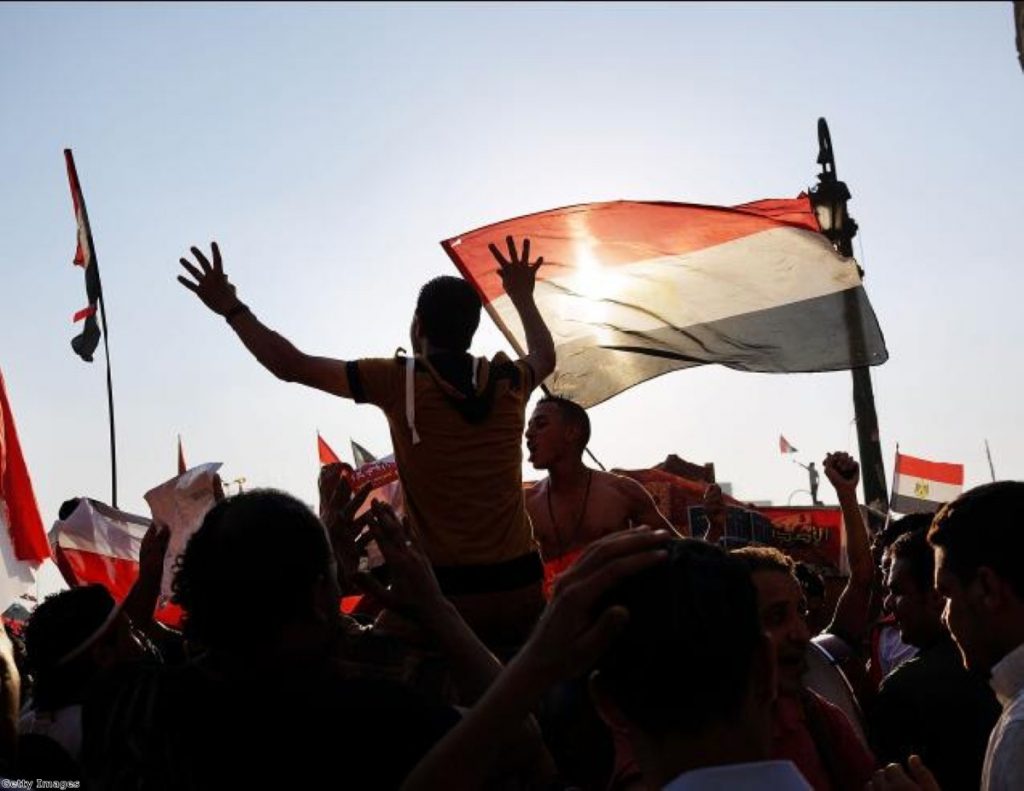The diplomatic response: Britain treads fine line after Egyptian coup
Britain will continue to recognise the Egyptian state, William Hague has said, despite yesterday's coup which toppled the democratically-elected Mohammed Morsi.
Crowds in Cairo's Tahrir Square celebrated all night after the Egyptian president was removed from office by the military.
The development plunges Egypt's future into doubt once more, as economic and political grievances continue to mount in a country where intense pressures are now faced by the vast majority of its 82.5 million population.
"We don't support military interventions in democratic systems… this will now move on very quickly," the foreign secretary told the Today programme.


"It's a dangerous precedent – if one president can be deposed by the military so could another in the future.
"We recognise states not governments. We recognise the state of Egypt and we have to work with whoever is in authority… there isn't really a question of not recognising [Egypt]."
General Abdul Fattah al-Sisi, the Egyptian army's commander-in-chief, moved against Morsi after days of unrest in the capital and elsewhere.
The protesters had made clear their dissatisfaction with Egypt's current economic problems. Many also cited Morsi's links to the Muslim Brotherhood, which had won 47% of the vote in the elections of late 2011.
Morsi, the leader of the Muslim Brotherhood's Freedom and Justice party, had come to power just 13 months ago, after taking 51.7% of the vote against the military's favourite, former prime minister Ahmed Shafiq.
Although democratically elected, Morsi's legitimacy had been undermined by the lack of a constitution or a legislative branch.
Analysts fear events in Egypt could descend into civil war if supporters of Morsi feel the leadership has been stolen from them.
However, many hope the army is prepared to step back from its controlling role to allow for new elections after a short period, when it is possible the constitution will be rewritten to include more Egyptians in the political process.
"We don’t support coups. We support democracy," deputy prime minister Nick Clegg said this morning on LBC.
"We want a return to peaceful democratic government in Egypt as rapidly as possible.
"The cruel dilemma for a country like Egypt is that democracy does not appear to have delivered stability. I hope we look back at this as a painful change for a country not accustomed to democracy."
Labour stood by the government's position, urging the importance of Egypt quickly setting out a "clear and credible path" back to democratic government.
"The British government are correct to urge all parties to avoid any further violence and bloodshed. But the priority now must be to urge restraint and encourage all sides to follow a peaceful path towards reconciliation in the months ahead," shadow foreign secretary Douglas Alexander said.
"The Foreign Office must continue to support British nationals in Egypt who require assistance and help from our embassy and consular services."












